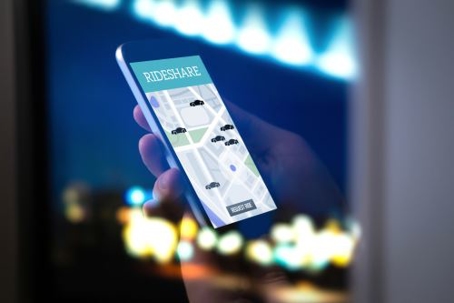Rideshare services like Uber and Lyft have changed many aspects of road travel for consumers. But as the popularity of these services continues to rise, allegations of sexual harassment and sexual assault have continued to surface too. Many plaintiffs have filed lawsuits against companies like Uber, claiming that they do not do enough to prevent injury for passengers. Car accidents can also be tricky to navigate from a rideshare perspective, and have also led to several lawsuits.
Because of these issues, in early September Uber announced some major safety improvements to the app. While these improvements are far from the first attempt to quell safety risks, Uber has insisted that the new feature, called Ride Check, will ensure that passengers are protected. At Martin, Jean, Jackson, Martin & Peach, we discuss the basics of this new feature, and examine whether it can accomplish what Uber claims.
Uber’s History of Safety Measures
Until 2018, Uber had made limited safety modifications to the app. The first improvement came in April, when Uber added safety alerts that could automatically send your ride information to 5 trusted contacts, and keep them informed about the progress of your ride. This, however, was considered by many to be too late, as back in 2014 the company lost a nearly $30 million dollar lawsuit alleging multiple sexual assault charges.
Additionally, Uber often claimed that it had no final responsibility for sexual assault claims, as all their employees are technically “independent contractors.” But because they are effectively paid a wage for off-hours and depending on number of passengers, Uber drivers do count as employees in most states, and there are very few civil courts that have found otherwise.
Ride Check and Uber Passenger Safety
So what specific problems does the new Ride Check tool attempt to solve? First, Ride Check allows Uber to predict when difficulties may arise over the course of your ride, whether through accidents or through misconduct. Ride Check is automatically triggered in the app when your smartphone detects a long stop during your ride, or picks up on the vibrations associated with a car crash. Once triggered, Ride Check will prompt an in-app menu called the “Safety Toolkit,” which will allow you to either call 911 or to report that you are safe and sound.
Another key feature is the anonymization of addresses. In the past, Uber provided full addresses of both pick-up and drop-off locations to drivers, which exposed riders’ personal information in a way that compromised their safety. Now, however, Ride Check ensures that addresses will be somewhat more protected: While you still need to provide a specific address for a pick-up and drop-off location, these will later be obscured if the driver attempts to look through their history, and will instead only show a general vicinity on the map.
How Can I Protect Myself While Using Uber or Lyft?
While the new features of Ride Check constitute a good first step towards passenger safety precautions, there are still some instances where no amount of caution can protect you from either bad intent, or a serious car accident injury. As a passenger of an Uber or Lyft, the best way you can protect yourself from bad actors is to use the tools provided and stay alert. Additionally, communicate regularly with your family and friends to ensure that others know your whereabouts. You can also consider sharing a carpool option if you need to ride after hours. To prevent car accidents, follow the traditional guidelines of safe car travel. This includes always wearing your seatbelt, scanning the road for obstructions and hazards ahead, and observing carefully as you step into and out of the car.
You may still suffer injuries during an Uber or Lyft ride. If that’s the case, contact our Oklahoma personal injury attorneys at Martin, Jean, Jackson, Martin & Peach Martin Peachfor a free consultation on your case. With more than 100 years of combined experience and millions of dollars won in settlements for our clients, we can fight for maximum compensation when you’ve been injured in a rideshare vehicle.
Injured in an Uber in Oklahoma? Contact us at for a free consultation.

